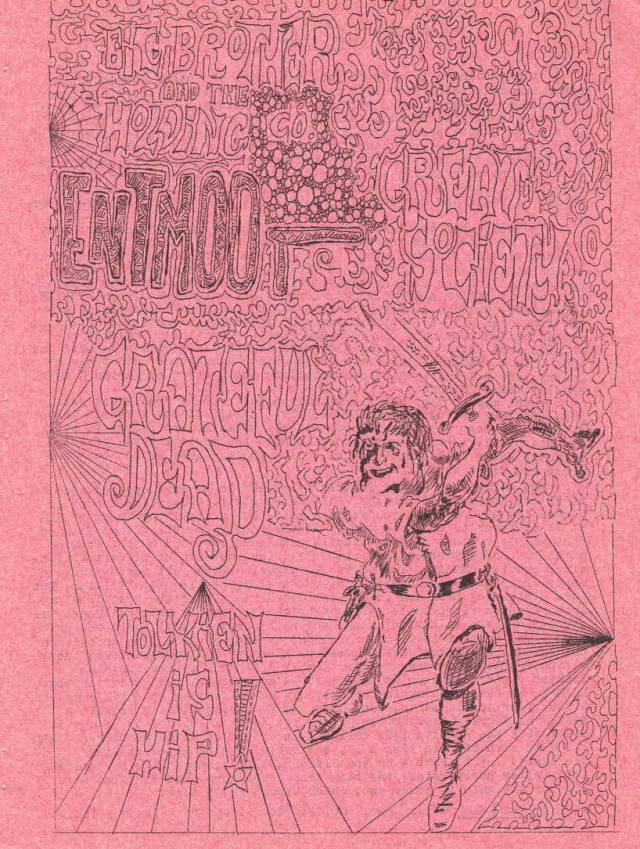“And laugh they did, and eat, and drink, often and heartily, being fond of simple jests at all times, and of six meals a day (when they could get them). They were hospitable and delighted in parties, and in presents, which they gave away freely and eagerly accepted.” Looking at this quote, what would you assume it’s talking about? Perhaps what comes to mind are the easygoing hippies of the late ‘60s. What may come as a surprise is that the people being discussed are not ones of our world, but rather of J.R.R. Tolkien’s Middle Earth. These are Hobbits.
As the Vietnam War raged on in the 1960s, so did the hippie movement—a countercultural movement that rejected fast-progressing American life. We know them now as youngsters who went around getting high and preaching appreciation for the earth, but they were so much more than that. Although they fit that depiction in a lot of aspects of their lives—living in communes, going vegetarian, and dressing unconventionally—the entire movement started with the goal of opposing the war. The iconic phrase “Make Love, Not War” came from the hippies, reflecting their views on the matter. Of course, the hippie movement devolved into something else, as all movements do. It became less about protesting the war and more about being “free spirits.”.
The hippies found solace in the world of Middle Earth once Tolkien finally published an official paperback version of Lord of the Rings with Ballentine Books. From the Hobbits’ unabashed enjoyment of creature comforts to the unexpected hero, it’s no wonder the hippies loved this story. It follows Frodo Baggins, a hobbit from the Shire, on his journey to destroy the evil One Ring in Mount Doom. Through the year-long adventure, he forms friendships and overcomes hardships.
Before the internet, whenever there were fandoms, there were fanzines. It was how you put all of your fanfiction, art, and opinions on any given medium into the public eye. Along with the content in the zine, they usually came with advertisements for things such as buttons, stickers, and pennants related to the fandom. Due to its popularity, Lord of the Rings had many of its own zines (click here to find them!). One such zine was Ilmarin, published in 1967. Ilmarin contained an article about the relationship between Tolkien’s works and hippies, fittingly titled “Hippie Hobbits” by Scott Smith, one of the most common writers to see in Tolkien fanzines, known for his stream-of-consciousness writing. Smith categorizes hippies into two groups: the exploited and the flower children. The flower child hippies are the ones that take kindly to The Lord of the Rings, while the exploited do not. He goes on to give his thoughts on the hippie movement for about four pages but gives a rather insightful quote. “The hippies too have retained some of the hobbit-Middle-earth culture, as well as ourselves. A desire for simplicity, a joy of giving and being together, and Knowing all your neighbors, the love of flowers (Hobbit, p.19,287, etc.), the desire for bells (I,279, etc.), love of bright clothes, love of handcrafts, love of peace, etc.” Although Smith himself does not claim to be a hippie, he sure gets the idea of the movement—and how it relates to Tolkien’s works—quite correctly.

Not everyone had the same positive opinions as Smith did. Bob Liebert writes about his distaste for hippies in an article titled “Is Frodo Dead?” that was published in Mumak, a similar fanzine put out in 1968. He states that “…the simplicity of Hobbitry is dead. Hippies (etc.) have gotten a hand in Tolkien turning the fantasy, unintentionally allegorical books, into the scholarly, intellectual novel of our times.” He continues to write about the seemingly superficial way that hippies participated in the fandom, specifically how their attendance at fandom events tended to derail the original meaning of them.
Despite mixed reactions, hippies were certainly part of the Lord of the Rings fandom. They kept the message clear and simple, even the smallest person can defeat the biggest evil, and what else is there to want from a fan other than for them to stay true to the material? Perhaps the hippies weren’t the reason the war ended, but the small part they—and Lord of the Rings—played isn’t anything to scoff at.
If you would like to write for Her Campus Mount Holyoke, or if you have any questions or comments for us, please email hc.mtholyoke@hercampus.com.


